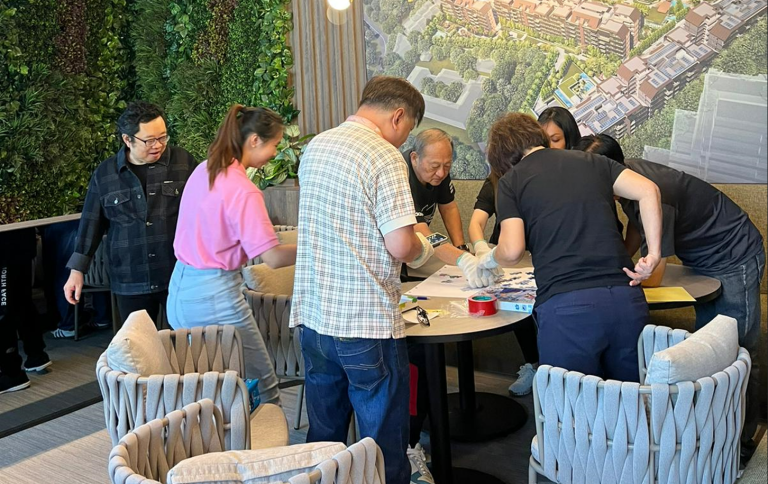Case Studies
Performance Excellence:
Transforming the Hospitality Industry in the Maldives: Harmonized Strategy and Operation
In the vibrant and competitive hospitality industry of the Maldives, establishing a harmonized strategy and streamlined operations is crucial for success. Many companies develop sophisticated strategies but often struggle to implement them effectively at the operational level. The key to overcoming this challenge lies in creating an interconnected and universal approach to objectives and indicators, ensuring alignment from top-down and bottom-up across all company activities. Frequently, objectives may be achieved at the lower levels but fail to resonate or succeed at the management level.
With our extensive experience and across a wide range of industries, we assist hospitality companies in the Maldives in identifying suitable and measurable goals, introducing, and monitoring them effectively. Our initiative database plays a crucial role in the development and implementation of appropriate measures to achieve your objectives. Together with you, we focus on the following goals:
We help break down strategic company objectives into manageable and achievable sub-objectives, ensuring every level of your organization understands and can contribute to the overarching goals. By setting up an end-to-end and effective system of indicators, we enable a realistic representation, comparability, and management based on the ACTUAL status of your operations. This comprehensive system ensures that every aspect of your business is monitored, aligned, and optimized for success.
Our approach guarantees that your strategy does not remain a mere plan but transforms into actionable steps that drive real results. Through our expertise and proven methodologies, we ensure that your company’s objectives are universally understood and pursued across all levels, from frontline staff to top executives. This alignment fosters a cohesive and focused effort, enhancing overall performance and achieving long-term success in the competitive hospitality market of the Maldives.
By partnering with us, you gain access to our wealth of knowledge and experience, ensuring that your strategic goals are translated into tangible outcomes. Our collaborative approach ensures that we work closely with you to tailor our solutions to your specific needs, guaranteeing that your hospitality business thrives in the unique and dynamic environment of the Maldives.


The program modules include:
Defining leadership principles and core values.
Enhancing communication skills for better team collaboration.
Developing skills to lead and motivate teams effectively.
Navigating through organizational changes and fostering adaptability.
Encouraging a culture of innovation within the company.
Leadership Development:
A Distinctive Transformative Approach.
This case study highlights the successful collaboration between a leading Singapore Electronic Manufacturer Supplier, to address critical challenges related to talent management and leadership development. With a strong focus on speed, quality, and cost, the company had overlooked the importance of nurturing internal talent and fostering a culture of continuous growth. This case study details how we devised and executed an innovative 5-module Leadership Development Program that had a profound impact on 80 managers and high-potential leaders within the organization, resulting in improved retention, engagement, and overall business performance.
The company has been a prominent player in the global electronic manufacturing industry, competing fiercely on Speed, Quality, and Cost. However, the company realized that focusing solely on these aspects was not enough to sustain long-term success. The absence of an effective talent management strategy hindered the development and retention of their internal talent. In response to this challenge, the company sought our expertise to design and implement a comprehensive Leadership Development Program.
Identifying the Need:
We conducted a thorough needs analysis in collaboration with the company’s leadership team. The analysis revealed several areas of improvement, including skill gaps, communication inefficiencies, and leadership competencies that needed enhancement. It was evident that investing in their managers and high-potential leaders would not only boost individual growth but also positively impact the entire organization.
Designing the Leadership Development Program:
Based on the needs analysis, we crafted an 5-module Leadership Development Program tailored to address the specific challenges faced by the company. The program aimed to instil leadership excellence, foster a culture of continuous learning, and align individual goals with the company’s overarching objectives and values.
HR Transformation:
We collaborate with ambitious businesses to design and deliver human-centered products and services. Because what matters to people, matters to us. From sustainable design projects in retail to design for health services, we’re ready to work with you. Our learning and development consulting services are designed to help retail businesses adapt to the emerging new work environment. People will need vastly upgraded digital, technical, management, and cultural capabilities to thrive in this new landscape.
Transforming the Retail Industry: Job Redesign for the New Normal
As the COVID-19 pandemic continues to disrupt operations and accelerate digital adoption, preparing the workforce for the new normal requires more than just changes to existing processes. Job redesign — which seeks to find a more optimal combination of tasks in a job role to enhance efficiency and productivity — has become a key consideration for businesses to maintain long-term competitiveness and agility in the face of disruptions
In the retail industry, job redesign can enhance existing job roles or create new ones, such as a data analyst role within an operations team. While the concept of job redesign is not new, adopting a structured way to redesign and reimagine how jobs are done based on four key facets — organizational strategy and structure, processes and tasks, technology, and people — is critical. This structured approach is vital to the effectiveness of job redesign efforts, given the interdependence of these facets. For example, changes in organizational strategy can drive the adoption of new technologies, which in turn requires upskilling and the creation of a culture that supports digitalization.

A Three-Step Approach to Job Redesign
Step One: Diagnose the Need for Job Redesign
When deciding whether job redesign is needed, businesses must consider pertinent questions relating to the four key facets: organizational strategy and structure, processes and tasks, technology, and people. If the organization is embarking on a new strategy that involves the development of new structures and teams or creating new core capabilities that require new ways of working, job redesign is necessary. This is now a key consideration as companies explore new lines of business and reshape their workforce in response to the COVID-19 crisis.
Job redesign is also required when processes need to be streamlined and redesigned to increase productivity and effectiveness through automation or digitalization, especially for low-value tasks that are time- or labour-intensive. New technologies offer digitalization opportunities that enable more resilient processes, improve how work is done, or drive better customer and employee experiences. However, these technologies also impact job roles, requiring employees to learn new skills to keep up with new technological solutions.
From a people perspective, businesses need to consider and address challenges in finding the right talent to perform newly configured jobs. Upskilling or reskilling to handle a different combination of tasks resulting from job redesign is critical to close any skill gaps and enhance the business value of job roles. Where appropriate, jobs should also be redesigned to better harness the capabilities and potential of existing employees, such as making jobs more age-friendly.
Step Two: Design the New Jobs
After identifying job roles that need to be redesigned, the new job roles should be crafted by exploring how a better combination of process design, technology adoption and enhancement, and upskilling can help alleviate the issues diagnosed in step one. For example, a retail company may redesign the role of a store manager to include responsibilities for analysing sales data, managing online orders, and coordinating in-store and online inventory.
For instance, a retail company sought to improve customer experience by redesigning the customer service associate’s role. After an in-depth diagnosis, the company streamlined existing customer service processes and incorporated technological solutions, such as automated customer support platforms. Tasks managed by customer service associates were reconfigured to enhance productivity and workload management, allowing them to perform more value-added tasks and better manage work-life integration.
In another example, a retail company wanted to increase the efficiency of its supply chain operations. By implementing an Internet of Things (IoT) solution, sensors were installed across the supply chain to provide detailed data for the supply chain manager to analyze and identify bottlenecks. The supply chain manager’s job role was redesigned to incorporate data analytics and continuous improvement, with upskilling opportunities to help manage these new responsibilities.
Step Three: Enable Implementation of New Job Roles
Change management is essential for the successful implementation of redesigned job roles. Inputs from current job role holders can be solicited during the redesign of their roles. Training and support should also be provided to help them adapt to new ways of working, especially in technology familiarization.
HR practices, such as learning and development and performance management, will need to be updated to support these individuals in upskilling efforts to take on their new responsibilities.

Training and Learning Development:
WSQ Training Providers and Approved Training Organisations (ATOs)
Are you a Workforce Skills Qualifications (WSQ) Training Provider or an Approved Training Organisation (ATO) facing challenges with regulatory compliance, operational management, digitization, or long-term strategic planning? We are committed to easing your burdens and streamlining these processes, allowing you to focus on what truly matters – enhancing the skills of our workforce in support of Singapore’s SkillsFuture (SSG) initiative. Let us handle the complexities so you can dedicate your expertise to driving the SkillsFuture movement forward.
Navigating WSQ or ATO Accreditation
Struggling with the process of applying for WSQ or ATO accreditation for your organization? With us, becoming a WSQ Training Provider or an Approved Training Organisation (ATO) is straightforward and hassle-free. Our comprehensive services go beyond traditional consulting, setting us apart from the competition. We offer integrated solutions tailored to support the WSQ Training Providers and ATO sector, ensuring full compliance with the regulatory requirements set by SkillsFuture Singapore (SSG).
Over the last 5 years we had
- Collaborated with SMEs to obtain and refine training content to ensure a good
customer experience. - Analysed and measured learning and development programs to ensure they met
employee and organizational needs. - Developed project plans and monitored course effectiveness.
- Partnered with Instructional design team on course design and research on best
practice techniques and theories ensuring methodologies are developed into course materials. - Collaborated successfully with management, subject matter experts and business analyst to analyse content to identify recommended practices and determine best delivery method.
Current Assignment involves in Designed, developed, and implemented eLearning while incorporating business objectives, training plans, SME input, user flows, and evolving user interface in an Agile environment.
We have developed and implement solutions and curriculum for diverse industries and using Singapore Skills Framework to develop industry-relevant programmes to response to employers’ and industry needs effectively. Skills Future Sectoral Framework track record Tommy has completed successfully includes the:
1. Infocom Technology such as “Integrated Marketing”, “Emerging Technology” etc.
2. Early Childhood Care and Education such as “Early Intervention Principles and Practices”
3. Food Services such as Interact and “Serve Food and Beverage Customers”, “Maintain F&B Services” etc.
4. Employability Skills such as “Maintain Personal Presentation & Employability at Supervisor Level”, “Work in a Team” etc.
5. Leadership & People Management such as “Develop Team Leaders through Capability Development and Coaching”, “Personal Effectiveness” etc.
6. Service Excellence such as “Manage the Service Brand”, “Demonstrate the Service Vision” etc.
7. Security such as “Operate Basic Security Equipment”, “Manage Disorderly Conduct and Threatening Behaviour” etc
Achievements Since 2018
| Assist “Company” to achieve ATO/TP status | Industries |
|---|---|
| 29 ATO/TP 4 Pending Approval | Hospitality, Service Retail, Service Manufacturing, Beauty and Spa, Infocom., Food and Beverages, Adult Education/ Academy |
| Design and Developed Courseware as Accredited by WDA/SSG More than 102 courseware | Hospitality, Service Excellence, Retail, Manufacturing, Beauty and Spa, Infocom., Food and Beverages, Adult Education/ Academy, Real Estate, Public Sectors, Banking and Finance, Aerospace, School of Higher Education, Polytechnic, Institute of Technical Education, Tourism, Arts and Sports, Consulting |
| Number of participants trained under WDA/SSG training program More than 38,000 pax | Hospitality, Service Retail, Service Manufacturing, Beauty and Spa, Infocom., Food and Beverages, Adult Education/ Academy, Real Estate, Public Sectors, Banking and Finance, Aerospace, School of Higher Education, Polytechnique, Institute of Technical Education, Tourism, Arts and Sports, Consulting |
